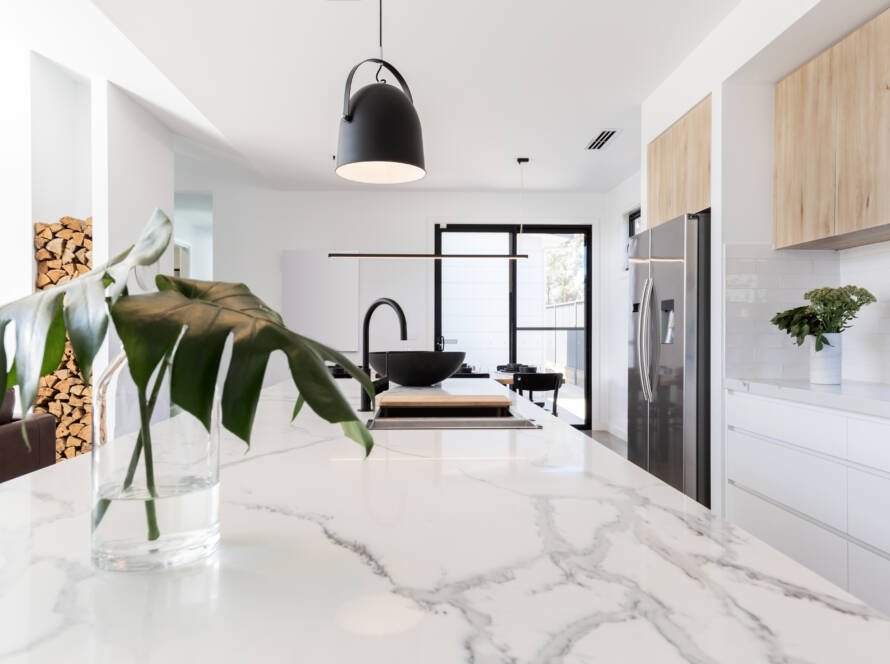Building a home is a significant investment—both financially and emotionally. The right builder can make the difference between a smooth, enjoyable process and a stressful, problematic one. With so many options available, how do you choose the builder who will bring your dream home to life with excellence and efficiency? Here’s a comprehensive guide to help you select the perfect builder for your home project.
1. Start with Research
Define Your Needs:
Before diving into the search for a builder, clearly define what you want. Are you looking for a custom-built home, a semi-custom design, or a production home? Understanding your needs will help you narrow down builders who specialize in your desired type of construction.
Gather Recommendations:
Ask friends, family, and colleagues for recommendations. Personal experiences can offer valuable insights into a builder’s reliability, quality of work, and customer service. Additionally, check online reviews and ratings on platforms like Yelp, Google, and industry-specific websites.
2. Verify Credentials and Experience
Check Licensing and Insurance:
Ensure that any builder you consider is properly licensed and insured. Licensing requirements vary by location, but a reputable builder will have the necessary certifications to operate legally. Insurance protects you and the builder in case of accidents or damages during construction.
Review Experience:
Experience is crucial in home building. Look for builders with a solid track record in projects similar to yours. An experienced builder will be better equipped to handle challenges and ensure a high-quality outcome. Ask to see examples of their previous work and request references from past clients.
3. Evaluate Their Work Quality
Visit Past Projects:
If possible, visit some of the builder’s completed projects. This allows you to see their work firsthand and assess the quality of construction, finishes, and overall craftsmanship. Pay attention to details and whether the homes have held up over time.
Ask for a Portfolio:
Request a portfolio of recent projects. A well-organized portfolio showcases the builder’s range of work and can give you a sense of their style and capabilities. Look for consistency in quality and design.
4. Understand Their Process
Construction Timeline:
Discuss the builder’s estimated timeline for your project. A reliable builder should provide a clear schedule and explain the key milestones. Ensure they have a reputation for completing projects on time.
Communication and Project Management:
Effective communication is essential for a smooth building process. Assess how well the builder communicates with you and manages the project. Will they provide regular updates? How accessible are they for questions or concerns?
Subcontractors and Suppliers:
Inquire about the subcontractors and suppliers the builder works with. High-quality builders partner with reputable subcontractors and suppliers, which contributes to the overall quality of the home.
5. Review Contracts and Warranties
Detailed Contract:
A well-drafted contract is crucial. It should detail the scope of work, materials, timelines, payment schedules, and any other relevant terms. Carefully review the contract and ask for clarification on any points you don’t understand.
Warranties and Guarantees:
Check what warranties or guarantees the builder offers. A reputable builder will provide warranties for both the workmanship and materials. This protects you against potential issues that may arise after you move in.
6. Compare Quotes and Value
Get Multiple Quotes:
Obtain quotes from several builders to compare costs. Be wary of quotes that are significantly lower than others, as they might indicate lower quality materials or hidden costs. Look for a balance between cost and quality.
Assess Value:
Evaluate the value each builder offers rather than just focusing on the price. Consider their reputation, experience, quality of work, and customer service. Sometimes paying a bit more for a builder with a strong track record can save you money and stress in the long run.
7. Trust Your Instincts
Assess Compatibility:
Finally, trust your instincts. Choose a builder you feel comfortable with and who understands and respects your vision. A positive working relationship is essential for a successful home building experience.
Review Contracts Thoroughly:
Before signing any agreements, ensure you thoroughly review the contract and have a clear understanding of the terms. If necessary, consult a legal professional to ensure your interests are protected.
Conclusion
Choosing the right builder is a crucial step in the home building process. By conducting thorough research, verifying credentials, assessing work quality, and understanding the builder’s process, you can make an informed decision that will set the stage for a successful and satisfying home building journey. Remember, your builder is not just a contractor; they are a partner in creating the home of your dreams. Make your choice wisely, and enjoy the process of turning your vision into a reality.



